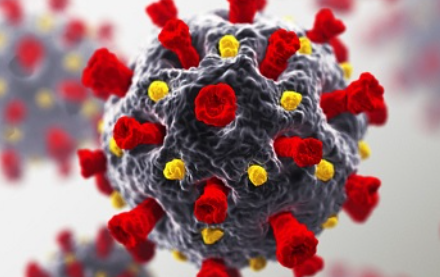Excretion of SARS-CoV-2 RNA in feces has no prognostic benefit in the outcome of COVID-19: A clinical and immunological study
DOI:
https://doi.org/10.17305/bb.2024.10176Keywords:
Coronavirus disease 2019 (COVID-19), severe acute respiratory syndrome coronavirus 2 (SARS-CoV-2), COVID-19 testing, immunoglobulin G, vaccination, viral load, feces, signs and symptoms, patient outcomeAbstract
This study explores the correlation between immunological and clinical characteristics in coronavirus disease 2019 (COVID-19) patients with detectable severe acute respiratory syndrome coronavirus 2 (SARS-CoV-2) RNA in feces, analyzing data from 251 patients admitted to Mostar University Clinical Hospital (UCH) from December 2021 to January 2022. Methods involved reverse transcription quantitative polymerase chain reaction (RT-qPCR) from nasopharyngeal (NP) swabs and feces, alongside serological tests for anti-SARS-CoV-2 spike IgGs. Demographic and clinical data were collected through questionnaires and medical records. The data analyses were performed using SPSS statistical software. Death occurred in 53 patients (21.1%, P < 0.001), mostly in the elderly (47/53, 88.7%, P = 0.001) and immunocompromised (19/53, 35.8%, P = 0.05), particularly those developing acute respiratory insufficiency (ARI) (46/53, 86.8%, P = 0.004), and severe/critical disease (46/53, 86.8%, P = 0.002). Among the patients with positive anti-SARS-CoV-2 IgG antibodies (86/251, 34.3%, P < 0.001), 41 (47.7%) were vaccinated and 45 (52.3%) unvaccinated (P = 0.666), showing no significant differences in clinical outcomes or mortality. Unvaccinated patients with a negative antibody titer had a higher incidence of ARI (96/123, 78%, P = 0.029) and intensive care unit (ICU) admission (22/123, 17.9%, P = 0.026), than those with a positive antibody titer. Forty-seven (62.7%) patients, out of the 75 hospitalized who provided a feces sample, were positive for SARS-CoV-2 RNA (P = 0.028), without statistical differences between fecal SARS-CoV-2 positive and negative groups regarding vaccination status (15/47, 31.9%, P = 0.493), antibody status (18/47, 38.3%, P = 0.628), or death outcome (5/47, 10.6%, P = 0.706). In conclusion, unvaccinated hospitalized patients with a severe COVID-19 presentation and a negative anti-spike SARS-CoV-2 IgG titer had adverse outcomes more frequently. This suggests cautious consideration for the diagnostic use of fecal samples compared to NP swabs.
Citations
Downloads

Downloads
Published
Issue
Section
Categories
License
Copyright (c) 2024 Božo Šušak, Monika Dalmatin-Dragišić, Luka Laura, Vinka Mikulić, Katarina Nakić, Ivanka Mikulić, Ilija Brizić, Jurica Arapovic, Maja Arapovic

This work is licensed under a Creative Commons Attribution 4.0 International License.
How to Cite
Accepted 2024-01-31
Published 2024-02-10









